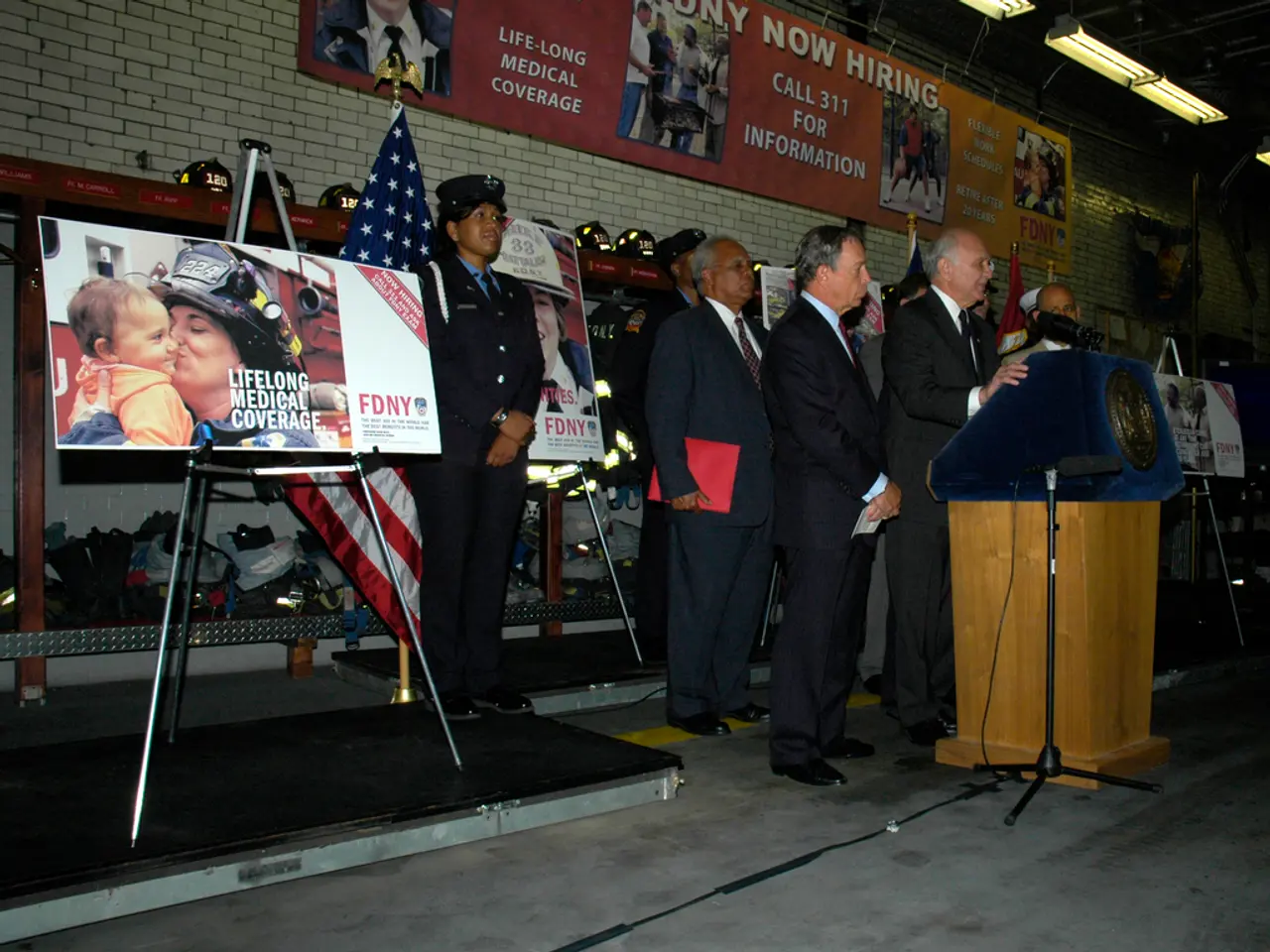Contested Case Dismisses Inclusion of Ndii and Three Others in the Cabinet
In a ruling handed down by Justice Lawrence Mugambi at the High Court in Nairobi, a case challenging President William Ruto's decision to invite certain individuals to attend Cabinet meetings has been dismissed. The court found no law prohibiting the occasional participation of non-cabinet members in these meetings.
The individuals in question are Cleophas Malala, David Ndii, Monica Juma, and Harriette Chiggai. However, since these individuals have denied sitting in the Cabinet, the burden of proof lies with the lawyer who filed the case.
The judge did not comment on the roles or responsibilities of the invited individuals in the Cabinet meetings, but did consider stories from newspapers about their attendance as secondary evidence. The judge also noted that the issue of non-cabinet members sitting in Cabinet is not a new one, as the current Lands Minister Alice Wahome had previously challenged the presence of General Mohammed Badi in former President Uhuru Kenyatta's cabinet.
Despite this, the judge did not comment on the legality of the president's decision to invite the individuals to attend Cabinet meetings, instead asking for more information to be presented in court to tilt the scales of justice. The judge also did not specify whether the current invited individuals have taken an oath of secrecy, a difference from the previous situation where General Badi was confirmed to have taken such an oath.
The ruling emphasizes that while occasional invitation of advisers falls within presidential discretion, permanent inclusion would amount to an unconstitutional expansion of the Cabinet, violating Article 152(1) of the Kenyan Constitution. The court sees this discretion as an internal operational matter within the Executive Branch and is reluctant to constrain it without clear constitutional breach.
Non-cabinet members attending Cabinet meetings in Kenya on an occasional, non-permanent basis is constitutionally permissible, as the High Court ruled that the President has discretion to invite experts or advisers for advice on specific matters. However, permanent inclusion or regular attendance of non-cabinet members at Cabinet meetings would be unconstitutional.
[1] Constitution of Kenya, 2010 [2] Article 152(1) of the Constitution of Kenya, 2010 [3] The Star, "Court Dismisses Case Against Ruto's Cabinet Attendance Policy" [4] The Standard, "High Court Dismisses Case Challenging Ruto's Cabinet Attendance Policy" [5] Daily Nation, "Ruto's Cabinet Attendance Policy Upheld by High Court"
Read also:
- Weekly happenings in the German Federal Parliament (Bundestag)
- Southwest region's most popular posts, accompanied by an inquiry:
- Discussion between Putin and Trump in Alaska could potentially overshadow Ukraine's concerns
- Massive 8.8 earthquake hits off the coast of Russia's Kamchatka Peninsula, prompting Japan to issue a tsunami alert.








